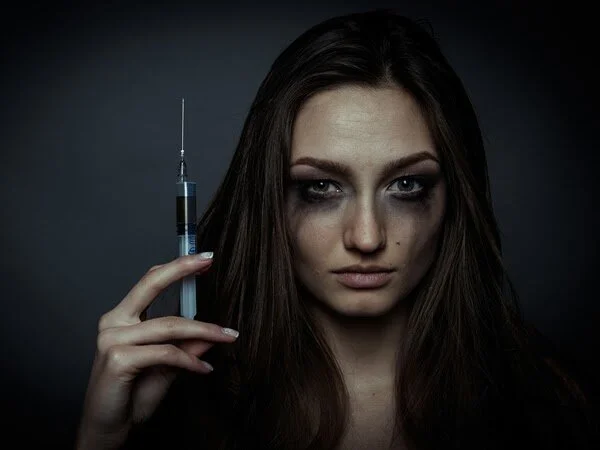Using Education to Combat the Stigma of Addiction
PHOTO COURTESY OF GREATOAKESRECOVERY.COM
Images like this, which come up if you search “addict” on Google, sensationalize and further add to the stigma of addiction.
Shame. Guilt. Denial.
These are the feelings that race through the minds of individuals with substance use disorders when they contemplate the decision to seek treatment. How can we change this unfortunate reality?
A few weeks ago, I gave a talk in Spanish class on the science and stigma of addiction. I showed the class the first images that come up on Google when you search “addict:” a woman with unbrushed hair and mascara dripping down her face clutching a heroin-laden syringe, a man with a black eye desperately grasping a glass of Scotch whiskey. I asked the class to tell me what words came to mind when they saw these images and when they think of the word “addict.” Poor. Dangerous. Immoral. These were only some of the pejorative words that my classmates instinctively associated with addiction. This misconception is not their fault—society, and often media, feeds us these derogatory labels and ideas. The only way we can combat this is with education. Only science-based pedagogy can combat these discriminatory perceptions and reduce the stigma of addiction.
Addiction is a disease after all, just like heart disease and diabetes. Yet, individuals with substance use disorders often face the wrathful judgment of society when they want to get help. This generalized condescension can be attributed to the stigma of addiction, the prejudices, and generalizations associated with substance use disorders and other addictions.
The negative impact of stigma cannot be underestimated. Tobacco consumption is the first leading cause of preventable death in the United States. Alcohol is the third. Yet, in 2019, only 7.2% of those who had alcohol use disorder received any kind of treatment. Stigma causes people to avoid recovery services out of a fear of unfair stereotyping and discriminatory treatment. So how do we encourage people to get the help they need? How do we destigmatize helpful treatments and therapies?
Ultimately, education shapes our view of the world and our understanding of society. The discussion of alcohol and drugs in health classes should be accompanied by an explanation of what addiction is on a scientific level. It begins with the recognition of addiction as a disease. Ms. Finder, Middle and Upper School Counselor, discussed how at Riverdale, the discussion of addiction would be expanded beyond prevention if health teachers were allotted more time to work with students. Since ninth grade health teachers only get 10-14 classes with each advisor and must cover other topics like sexual health, they have to limit the depth and breadth of each conversation. The unit on drugs and alcohol, especially vaping, covers topics like adolescent brain development, influence, decision-making, and short/long term effects. However, a discussion of the stigma and drug-specific science is not a large part of the curriculum because of the lack of time.
It’s important for adolescents to know that nobody is immune to addiction. The development of a dependency comes down to how one’s brain interacts with a drug, and how it makes them feel. There are different avenues through which to understand addiction, as addiction is a multifaceted phenomenon, and each drug has a different effect on the body, whether chemical or psychological. The main point is that one’s reaction to drugs creates a pattern that causes the presence of the drug to become the normal physiological state, and eventually, chronic drug use changes the body’s homeostasis, often permanently.
If adolescents had a scientific understanding of addiction, they would know that having an addiction says little to nothing about the character of a person, and they would be more likely to both seek help when they are in need and to recognize addiction in others. Children might never imagine that their high functioning parent or friend could be addicted because they imagine that an addict is “immoral” or “dangerous,” traits they likely do not associate with their loved ones.
If we can understand why people become addicted, we can change our view on who we imagine to become addicted. Students should feel comfortable approaching the Upper School’s four counselors (Dr. Jason Gold, Ms. Alison Finder, Ms. Cynthia De La Rosa, and Ms. Christina Young), who are equipped to discuss your or a loved one’s experience with addiction. Treatment is available and easily accessible, and education should not be a barrier to seek it.
In the end, stigma and a lack of education is a problem not only in the world of addiction. It’s relevant to mental health, sexually transmitted diseases, and sexual abuse. Indeed, judgment, discrimination, and a dire lack of knowledge surround the issues that affect us the most. It is our job to open up, to learn, and to talk to each other.


